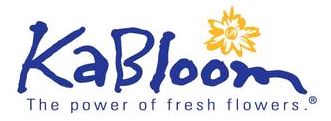How to Not Get Lost in the Crowd
Suppose you're looking for a florist. You wade through ads in the phone book for...
- Cynthia's Flower Shop
- Ken's Flower shop
- Bea's Flowers and Gifts
- Fine Flowers
- The Flower Garden
- The Flower Pot
- Thrifty Florist
and then you see...

All of these names tell you what goods and services the owner is selling. But which one catches your eye? Which one are you likely to remember?
Businesses are often tempted to select a name that straightforwardly describes who they are and what they do. Here are six reasons why you should resist that temptation.
- No one will notice you. Enough said. Enough said.
- If they do notice you, they won't remember you. (Without peeking: can you recall even one of the other names from the list above? And you just read it a few seconds ago...)
- You won't stand out in internet search results. Try entering "fine flowers" in the search engine of your choice and see how many hits you get back.
- You'll have a hard time getting legal protection for your name. A mark that is considered "merely descriptive" isn't protectable unless you can prove that when consumers see it, they think only of your goods and services. That's a tall mountain to climb.
- You'll have a hard time stopping others from using it. See Point 4., above.
- You might outgrow it. Consider the following logo:

It's not hard to guess what this company started out doing, or what they're doing now. Do you think they wish they hadn't spent years investing in a brand identity that leaves out a big piece of their business?
Sometimes "Joe's Barber Shop" might be all you need. But both your marketing consultant and your trademark lawyer will tell you that it's usually better to pick a distinctive name (like "KaBloom") that makes a stronger first impression and sticks in the memory longer; or one like "Kodak" or "Exxon" that has no meaning other than the one you and your products give it. You can always add a descriptive tag line, like "The Power of Fresh Flowers," which is easier to change when necessary.
Good News from Washington (For a Change): Trademark Filings Just Got Cheaper
The old joke is that the three least believable sentences in the English language are: "The check is in the mail," "Of course I'll respect you in the morning," and "I'm from the government and I'm here to help you."
But fair is fair, and I am happy to report that one arm of the government has done something very helpful indeed: the Trademark Office has reduced the cost of filing trademark applications and renewals.
Once upon a time, all trademark filings were done on paper and via the U.S. Mail. That option is still available, but it's expensive: you pay a $375 fee for each classification of goods and services in the application. Several years ago, the office introduced electronic filing. As an inducement to use the new approach, it lowered the fee to $325 for electronic applications. The strategy worked, and the vast majority of trademark applications are now filed electronically.
This month the Trademark Office introduced yet another option: the "RF" ("Reduced Fee") application, which costs only $275. The catch is that you have to use electronic filing for all subsequent filings pertaining to the application. If at any point you revert to paper filing, you get hit with a $50 charge. But most sophisticated companies and law firms – like ours – typically do all their filing electronically anyway, so it's not a big issue.
The Trademark Office has also reduced the fee for renewing a registration, from $500 to $400. Registrations are only renewed every ten years, so that's not a huge saving in absolute terms. But when was the last time the government gave you a 20 percent discount on anything? (That's what I thought.) I look forward to passing these savings along to clients going forward.
Watch Your Step on the Road to the Final You-Know-What
The NCAA men's national basketball tournament is right around the corner. So now is a good time remind those of you planning advertising and marketing campaigns that the NCAA owns trademark rights in a number of very familiar phrases and slogans associated with the event, such as:
- FINAL FOUR
- ELITE EIGHT
- NCAA SWEET SIXTEEN
- THE ROAD TO THE FINAL FOUR
- THE BIG DANCE
- MARCH MADNESS
There are ways of using these phrases that don't run afoul of the law. But it can get tricky. So a word to the wise: If you're thinking about using any of these phrases to market your goods or services, think again. And talk to a trademark lawyer before proceeding.
The content of this article is intended to provide a general guide to the subject matter. Specialist advice should be sought about your specific circumstances.
